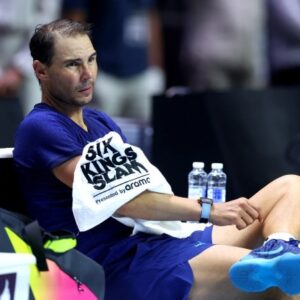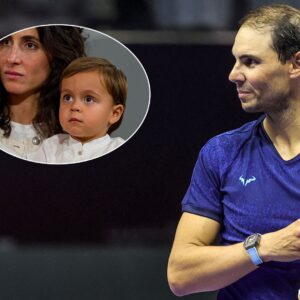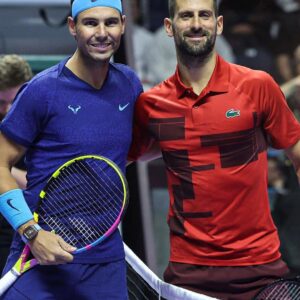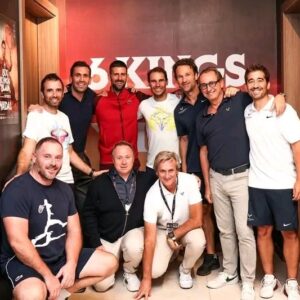Novak Djokovic finally won the Olympic gold medal, and doing it on the Roland Garros courts made it even better for him, especially as the run included a win over Rafael Nadal.
For a long time, Djokovic dreamed of winning the Olympic gold medal, but it never quite happened to him. He suffered an upsetting loss against Nadal at the Beijing Olympics, where Nadal went on to win the gold medal in singles.
He’s had a few decent chances since then, but he could never leave the Olympic Games with the gold medal around his neck. Never until this year, when he finally made it to the Olympic final and played a spectacular match to beat Carlos Alcaraz in the final and secure a lifelong dream of winning the gold medal for Serbia.
It’s one of the most important triumphs of his career, and he spoke extensively about it in a recent interview with Serbian national broadcaster RTS.
“The biggest reason is the fact that I had the chance to represent Serbia once again in a global, most important sporting event. The other reason is my Olympic career – I lost to Nadal in a close semifinals in Beijing, then I lost two more semis at the Olympics, lost the third-place battles too – these were among the toughest losses of my career.”
How Djokovic reacted to winning the Olympic final was proof of how much it meant to him. It was the most emotional fans have seen him in a very long time.
It wasn’t easy after all, because the Serbian suffered some setbacks in the pursuit of it. He had a knee injury that he didn’t plan, but the Games were his main goal for the season, and he was able to win.
“I always feel, so to say, ’general’ pressure that I always have to win – from others, but from myself as well since I am a perfectionist and I sacrifice a lot in order to play my best when it matters the most.”
“The Olympics were my main goal. I was very worried after the knee injury at Roland-Garros, but when I managed to play the finals at Wimbledon, I was relieved since I knew I would be ready for the Olympics.”
One interesting thing that Djokovic said in that interview was that he didn’t feel as much pressure leading up to the final. He felt confident about his tennis heading into it, especially having beaten Nadal in the rounds before.
He also felt a lot of support back home, which inspired him to finally win the Olympics, and he did.
“On the other hand, there is what I like to call ’additional’ pressure, which depends on the form. Ahead of the finals in Paris, I haven’t lost a set, I’ve beaten Nadal at his home – although he was not at his best, but still, beating him in Paris is something huge… I felt the energy and support from home as well, so that ’additional pressure’ was lower than usual.”





